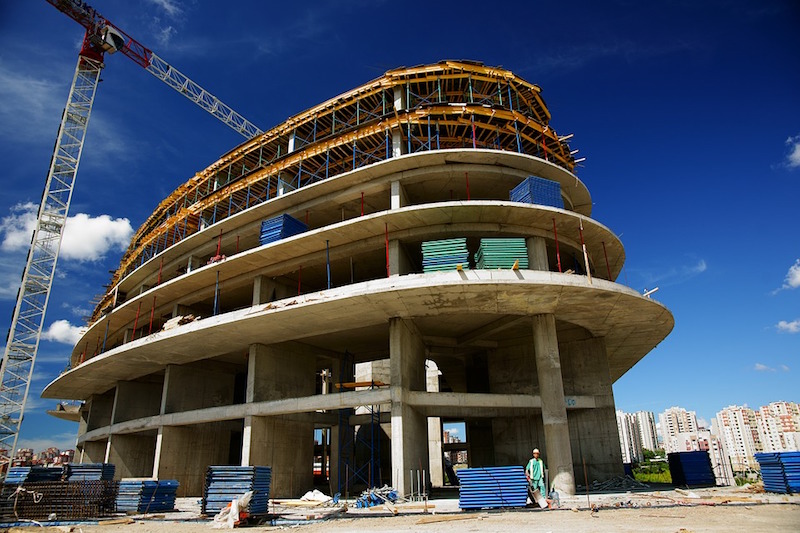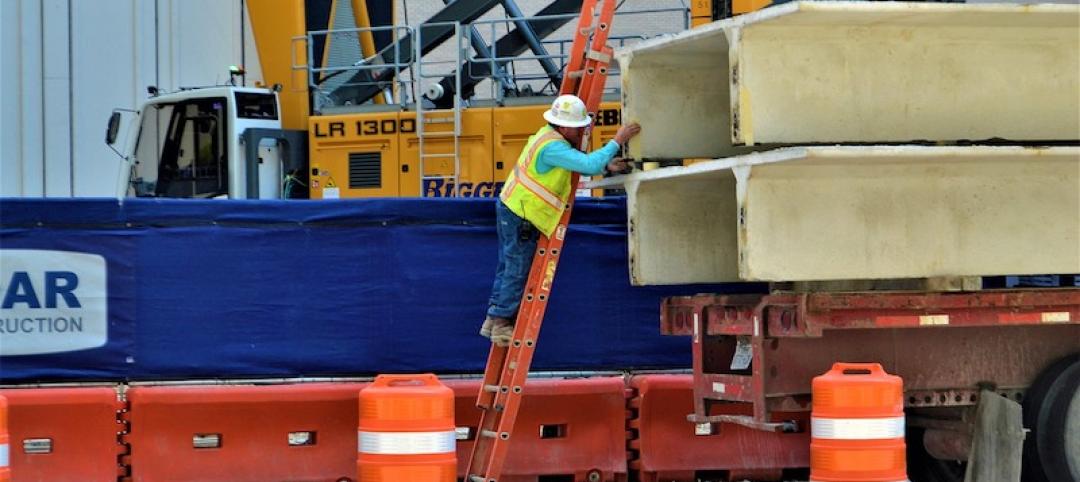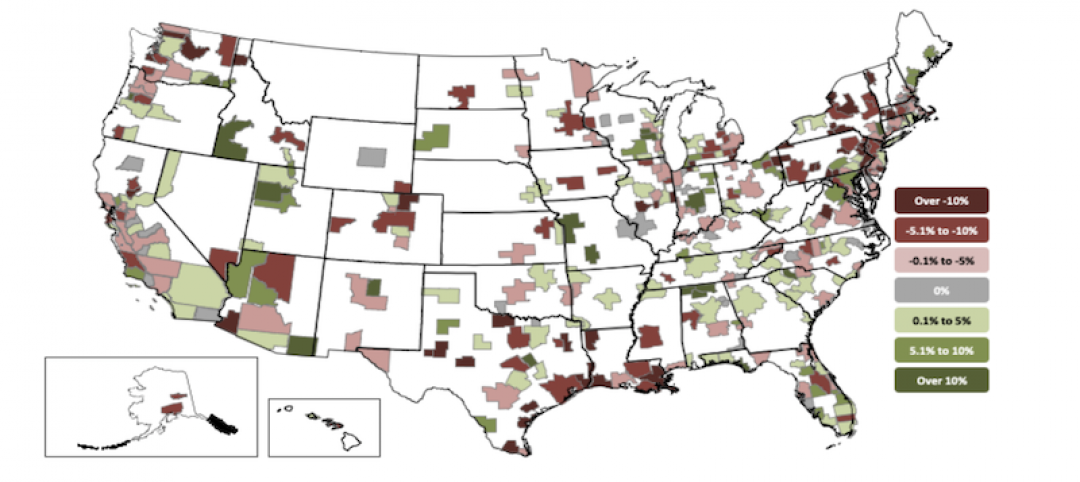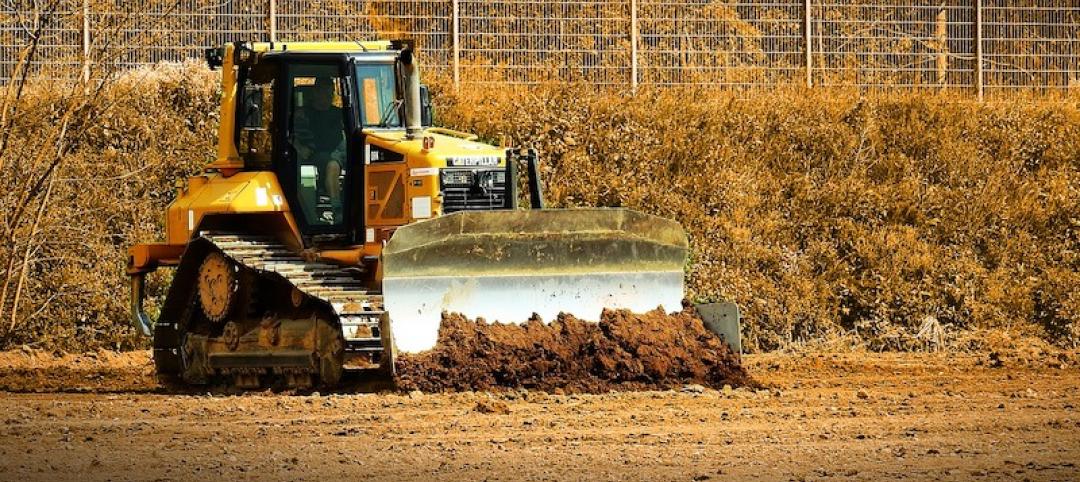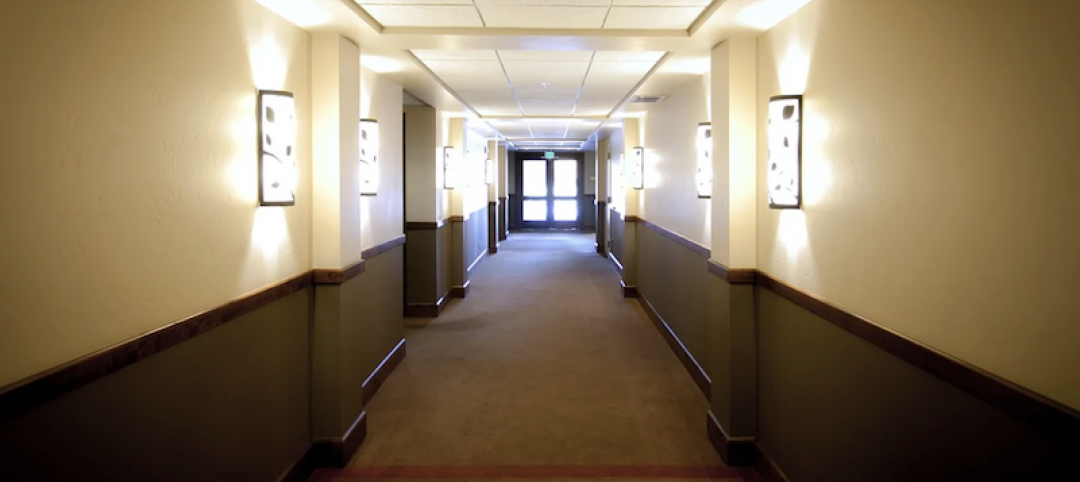Construction spending in February inched up 0.1% from January and increased 3.0% from the February 2017 level, according to an analysis of new government data by the Associated General Contractors of America. Association officials noted that public construction dropped sharply in February and urged federal agencies to move promptly to invest recently approved funding for a variety of construction categories.
"Construction spending in February was marked by healthy gains in most private categories but a widespread and steep downturn in public construction," said Ken Simonson, the association's chief economist. "Year-over-year trends suggest overall expansion, but public investment will depend on how quickly federal agencies follow up on the spending that Congress has authorized."
Construction spending in February increased 0.1% from January to a record level of $1.273 trillion at a seasonally adjusted annual rate. The February total exceeded the year-earlier level by 3.0%. For the month, private nonresidential construction spending rose 1.5%, private residential spending edged up 0.1%, but public construction spending declined by 2.1%. On a year-over-year basis, private residential construction spending increased 5.5%, private nonresidential spending added 1.1%, and public construction spending grew by 1.6%.
"All but one of the 13 public construction categories declined for the month," Simonson pointed out. "In particular, the largest public segment—highway and street construction—decreased 0.2% from January and 5.1% compared with the year-ago level. In contrast, new single- and multifamily construction increased for the month and year-over-year, as did most private nonresidential categories."
Association officials called on federal agencies to act promptly to distribute or spend the construction funds that Congress approved last month as part of an appropriations bill that keeps the government open through September. Officials noted that programs covering highways, other transportation, water and wastewater state revolving funds, and direct federal construction received funding increases after years of spending freezes or cuts, but these authorizations in some cases will expire in less than six months.
"Federal, state and local officials should act quickly to put the newly enacted federal funding to work improving infrastructure," said Stephen E. Sandherr, the association's chief executive officer. "It would be a shame to let an entire construction season pass before putting these new dollars to work improving the nation's public works."
Related Stories
Healthcare Facilities | Feb 18, 2021
The Weekly show, Feb 18, 2021: What patients want from healthcare facilities, and Post-COVID retail trends
This week on The Weekly show, BD+C editors speak with AEC industry leaders from JLL and Landini Associates about what patients want from healthcare facilities, based on JLL's recent survey of 4,015 patients, and making online sales work for a retail sector recovery.
Market Data | Feb 17, 2021
Soaring prices and delivery delays for lumber and steel squeeze finances for construction firms already hit by pandemic
Association officials call for removing tariffs on key materials to provide immediate relief for hard-hit contractors and exploring ways to expand long-term capacity for steel, lumber and other materials,
Market Data | Feb 9, 2021
Construction Backlog and contractor optimism rise to start 2021, according to ABC member survey
Despite the monthly uptick, backlog is 0.9 months lower than in January 2020.
Market Data | Feb 9, 2021
USGBC top 10 states for LEED in 2020
The Top 10 States for LEED green building is based on gross square feet of certified space per person using 2010 U.S. Census data and includes commercial and institutional projects certified in 2020.
Market Data | Feb 8, 2021
Construction employment stalls in January with unemployment rate of 9.4%
New measures threaten to undermine recovery.
Market Data | Feb 4, 2021
Construction employment declined in 2020 in majority of metro areas
Houston-The Woodlands-Sugar Land and Brockton-Bridgewater-Easton, Mass. have worst 2020 losses, while Indianapolis-Carmel-Anderson, Ind. and Walla Walla, Wash. register largest gains in industry jobs.
Market Data | Feb 3, 2021
Construction spending diverges in December with slump in private nonresidential sector, mixed public work, and boom in homebuilding
Demand for nonresidential construction and public works will decline amid ongoing pandemic concerns.
Market Data | Feb 1, 2021
The New York City market is back on top and leads the U.S. hotel construction pipeline
New York City has the greatest number of projects under construction with 108 projects/19,439 rooms.
Market Data | Jan 29, 2021
Multifamily housing construction outlook soars in late 2020
Exceeds pre-COVID levels, reaching highest mark since 1st quarter 2018.
Market Data | Jan 29, 2021
The U.S. hotel construction pipeline stands at 5,216 projects/650,222 rooms at year-end 2020
At the end of Q4 ‘20, projects currently under construction stand at 1,487 projects/199,700 rooms.


